The global brick industry is responsible for 2.7% of carbon emissions worldwide, and the demand for bricks is growing rapidly. In Nepal, the NABIN – New and Affordable Building Materials promoting Sustainability in Nepal -project is working to make bricks that are eco-friendly, resilient and affordable for poor families. The interlocking brick business is not just creating jobs for hundreds of youth and women in Nepal, it is also helping to reduce carbon emission.
In the scorching heat, Hari Krishna Sapkota is busy putting water in the bricks stored by the side of a small hut where the bricks are produced. He looks very energetic and committed to what he is doing. His co-partner Ramesh Syangten is observing the brick production and assisting the workers in their activities.
The passengers traveling through this road often stop their car and ask about the bricks. Most of them sound positive when they listen to Hari Krishna. “There are some who have started their own business seeing ours,” he says.
Creating opportunities - Ramesh unfolds the journey of his entrepreneurship from being a migrant worker for three years in Malaysia until 2018 to one of the owners of the brick company in his village, Indrasarowar Rural Municipality. “It was difficult to even save NPR 10,000-15,000 (EUR 78 to EUR 117) per month in Malaysia. The pay was not enough to earn bread for my family, and therefore, I came back home within three years,” Ramesh says. When he came to Nepal, he started looking for an opportunity and was frustrated after he couldn’t find any for almost a year. Then he decided to leave the country once again and started hunting for a job in the Gulf. And that wasn’t easy, either. When he heard about the Compressed and Stabilized Earth Bricks (CSEB) from his friend who had seen the details of the brick production in the social media of Build Up Nepal, Ramesh was very excited. “This is where my journey started and I am happy that I could start this business,” he says. “I realised that when a person slowly starts to become successful in work, bad habits and influences slowly start to go away.”
Both of Ramesh’s business partners, Hari Krishna and Dadhiraj, used to be farmers, which did not pay enough to live a quality life. They were also desperately looking for jobs. The three school friends came together to start their own company, Indrasarowar Interlock Brick Factory. “Three of us started the factory and we now have four helpers,” says Hari Krishna. “From the factory, we are supporting 22 family members.”
Subash Tharu, 23, from Bardiya District in the Western Nepal works here along with his cousin. They earn around NPR 30,000 to 35,000 (EUR 234 to EUR 273) per month.
“Many of my friends have invested a huge amount of money to go to the Middle East and Gulf looking for work. Some have had to come back when the company shut down, and they could not recover their investment,” Subash says, adding that the sustainable brick industry could be an opportunity for youths making money in their own country.
The CSEB business is helping youths by providing employment opportunities through smaller investment. “The NABIN project is working on creating jobs by providing technical knowledge of constructing a building by using these bricks, training of masons and supporting the entrepreneurs to excel in their business by connecting them to the municipalities and the market,” says Ajay Pandey, Project Consortium Manager. This project, so far has helped set up businesses of 42 entrepreneurs, creating jobs for at least 430 people that will affect the daily lives of 2,365 individuals.
“So far, we have supplied bricks to build 35 houses and nobody has had any complaints. We have already gotten back our investment,” says Dadhiraj, adding that they had never imagined that it would be this successful when they first started this business. This is an example of one of the enterprises established by the project. So far, approximately 400 houses have been constructed using the CSEB as part of this project.
Reducing Emission -The use of CSEB is not just creating jobs; it is also helping in reducing the carbon emission. “Although this is a factory, it does not produce noise, so the neighbours don’t get disturbed,” says Dadhiraj. “The work doesn’t emit dust and smoke, so it doesn’t affect their health. I feel proud of my work.” The project so far has reduced Co2 emission by 1,286 tonnes (equivalent of flying from Copenhagen to Kathmandu and back... 285 times!)
The project aims to establish 100 CSEB micro-enterprises, produce 21 million bricks , and construct 3,500 houses (or equivalent infrastructure) using these bricks, create employment opportunity for 1,650 locals, and reduce CO2 emission by 16,231.52 MT by the end of August 2020.
Saves money - It saves one third of the total cost in comparison to the houses built with traditional bricks. “It saves time and the amount of materials that is needed compared to the traditional bricks,” says Ashis Gautam, Engineer at Build Up Nepal. “We have calculated that it is actually saving 25 to 30 per cent of the total cost.” Bimala Tamang, a house owner, was very happy to build her house using CSEB. She shares that everyone visits her house to know more about this brick. “It makes us proud that we chose these bricks to build our house,” she says.
The NABIN project in implemented by a consortium led by DCA together with Practical Action and Build Up Nepal.
Article written by Ishwar Rauniyar, DCA
More information
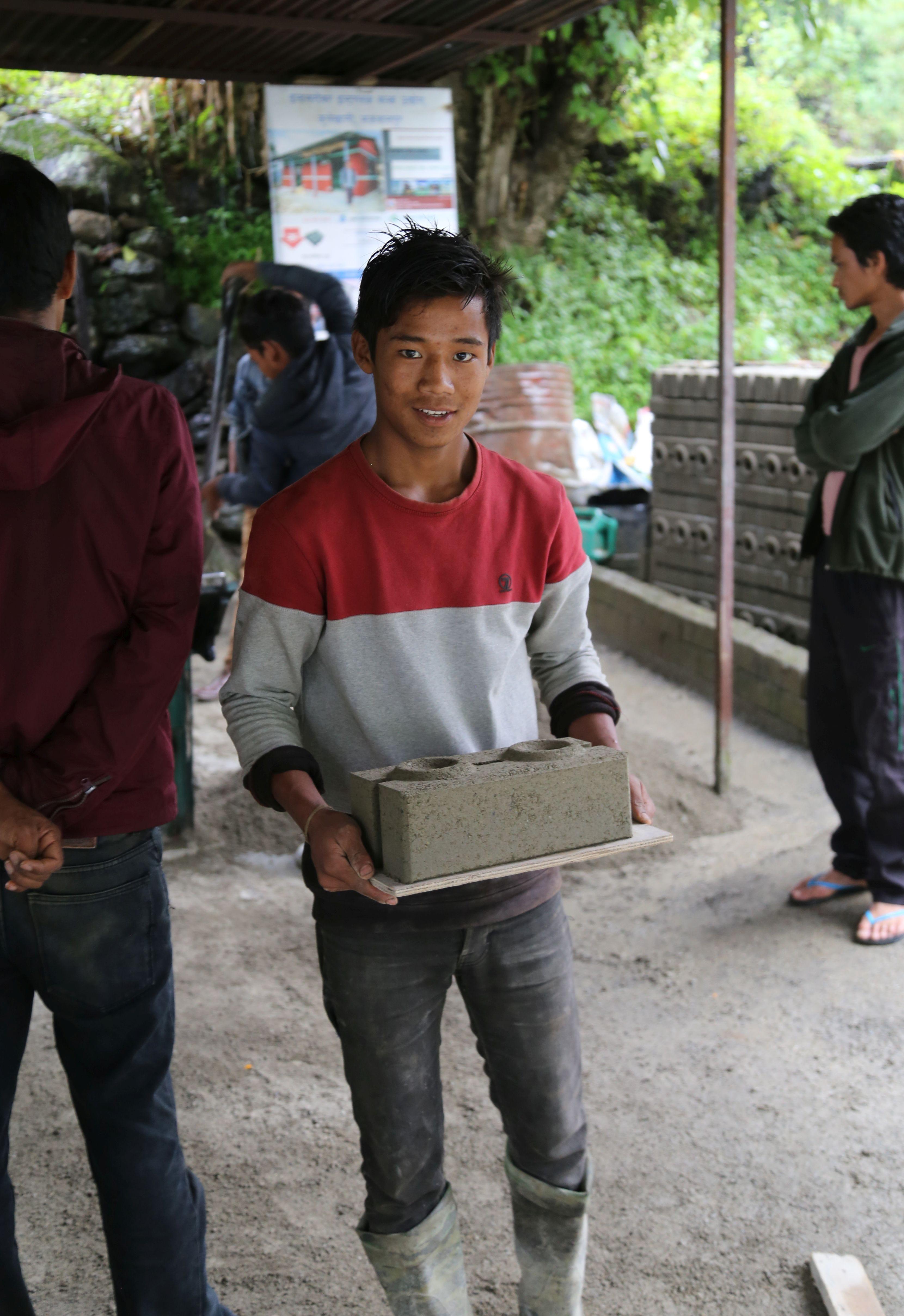
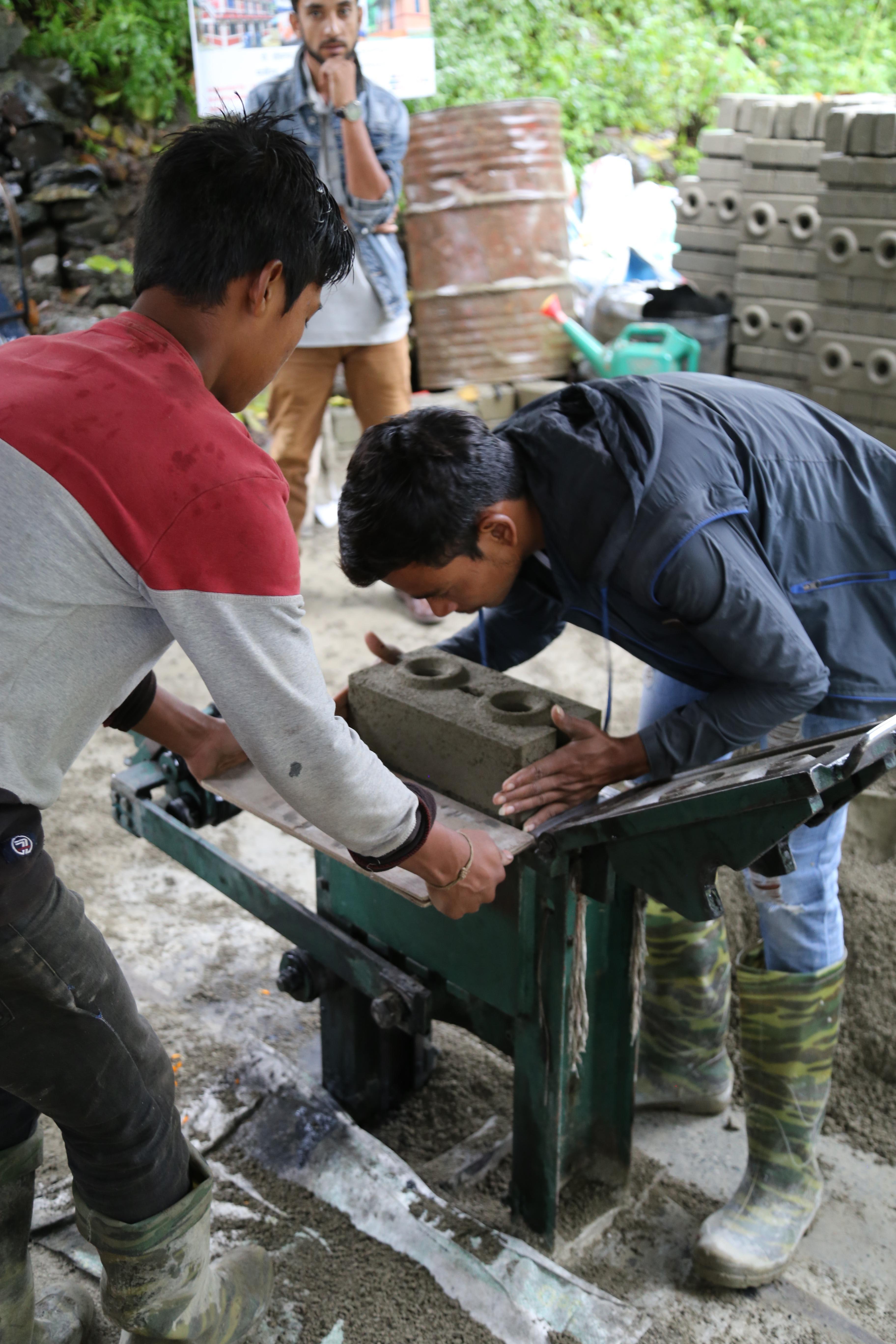
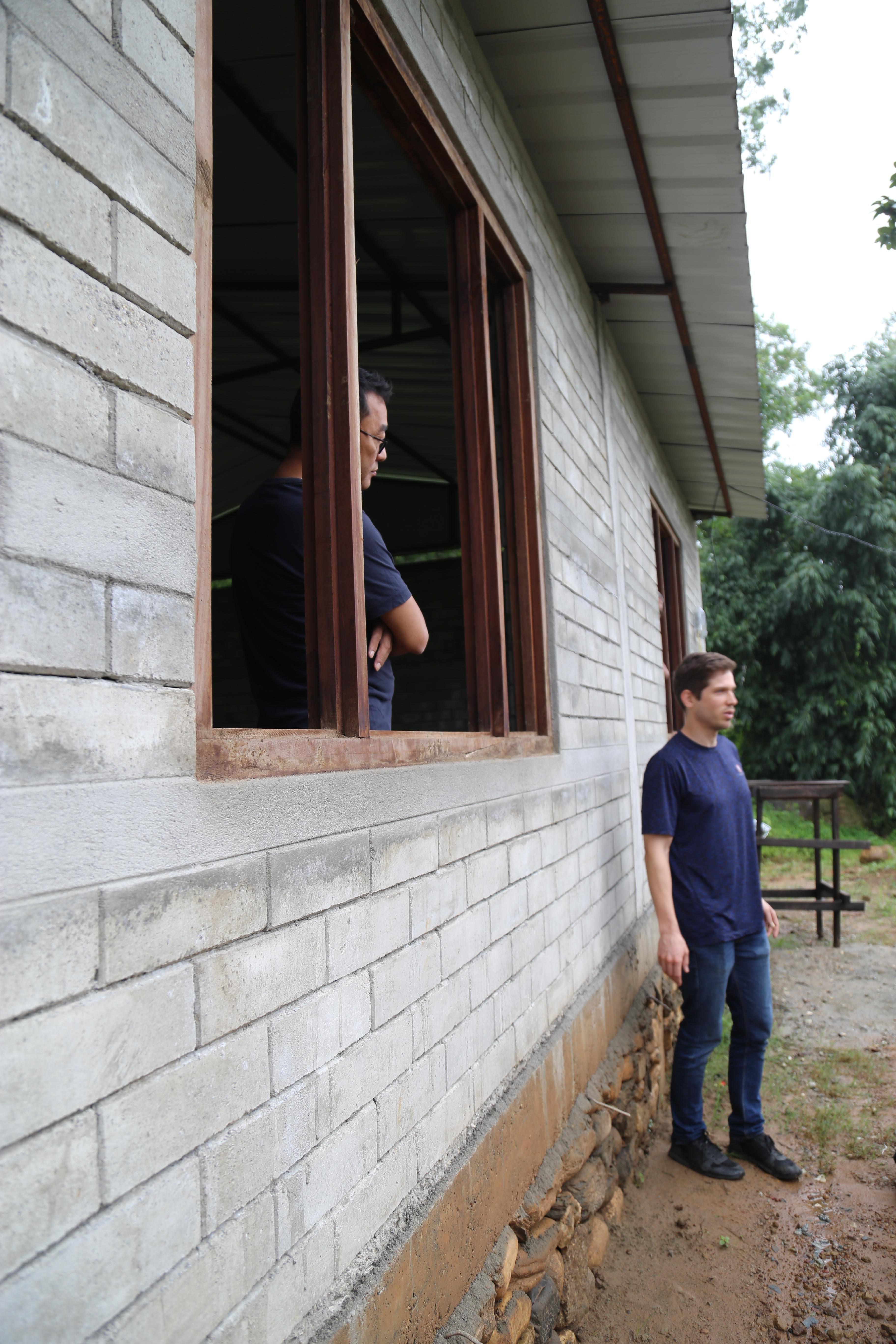
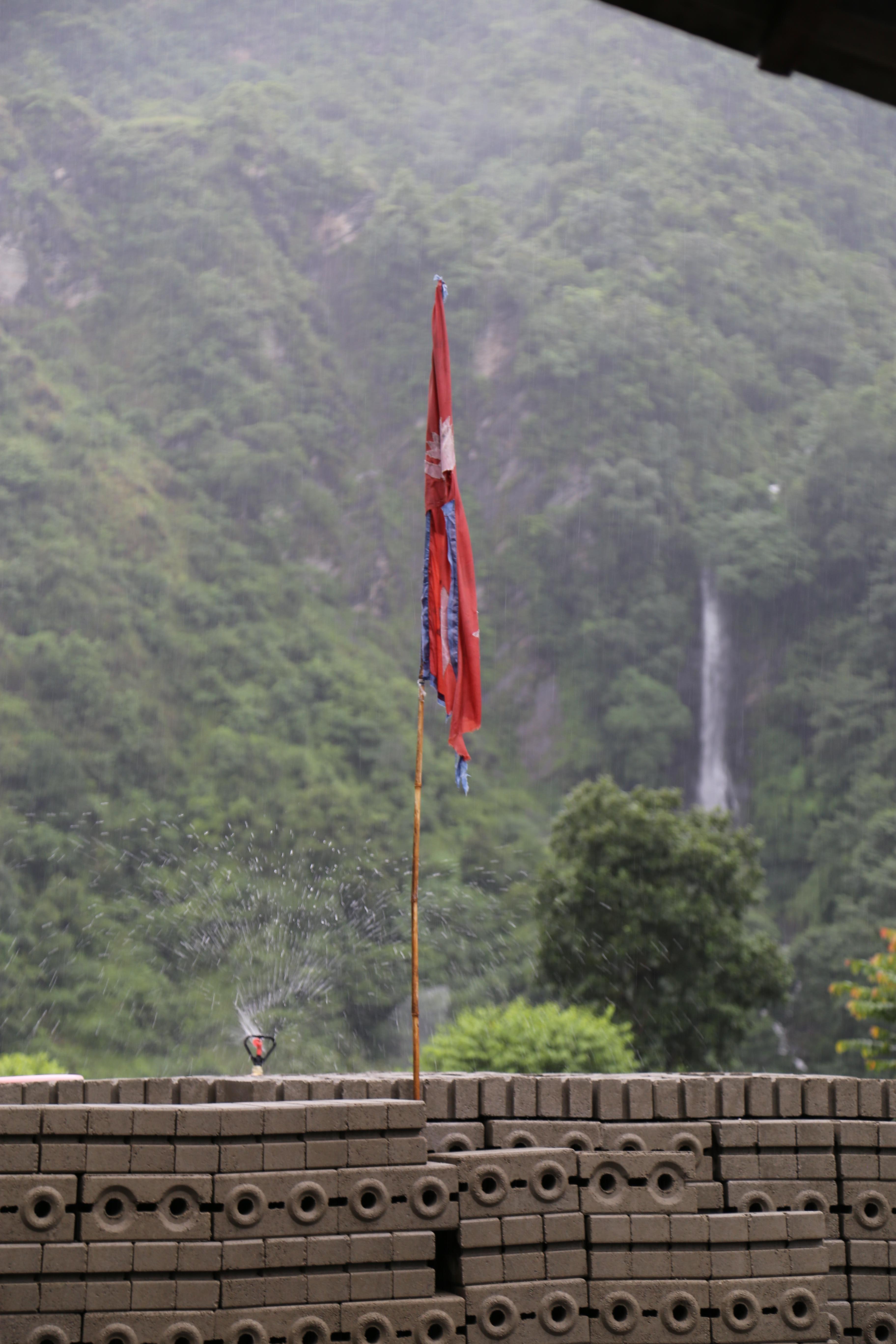
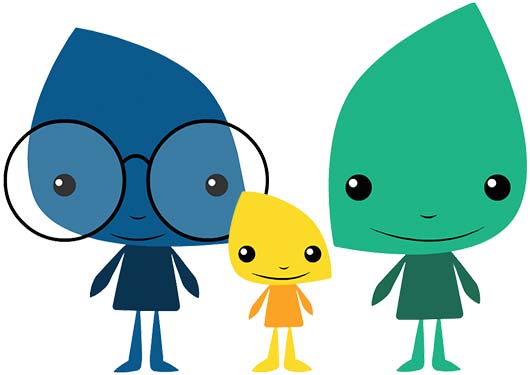
 The Nordic Climate Facility (NCF) is a challenge fund that finances innovative climate change projects.
The Nordic Climate Facility (NCF) is a challenge fund that finances innovative climate change projects.
